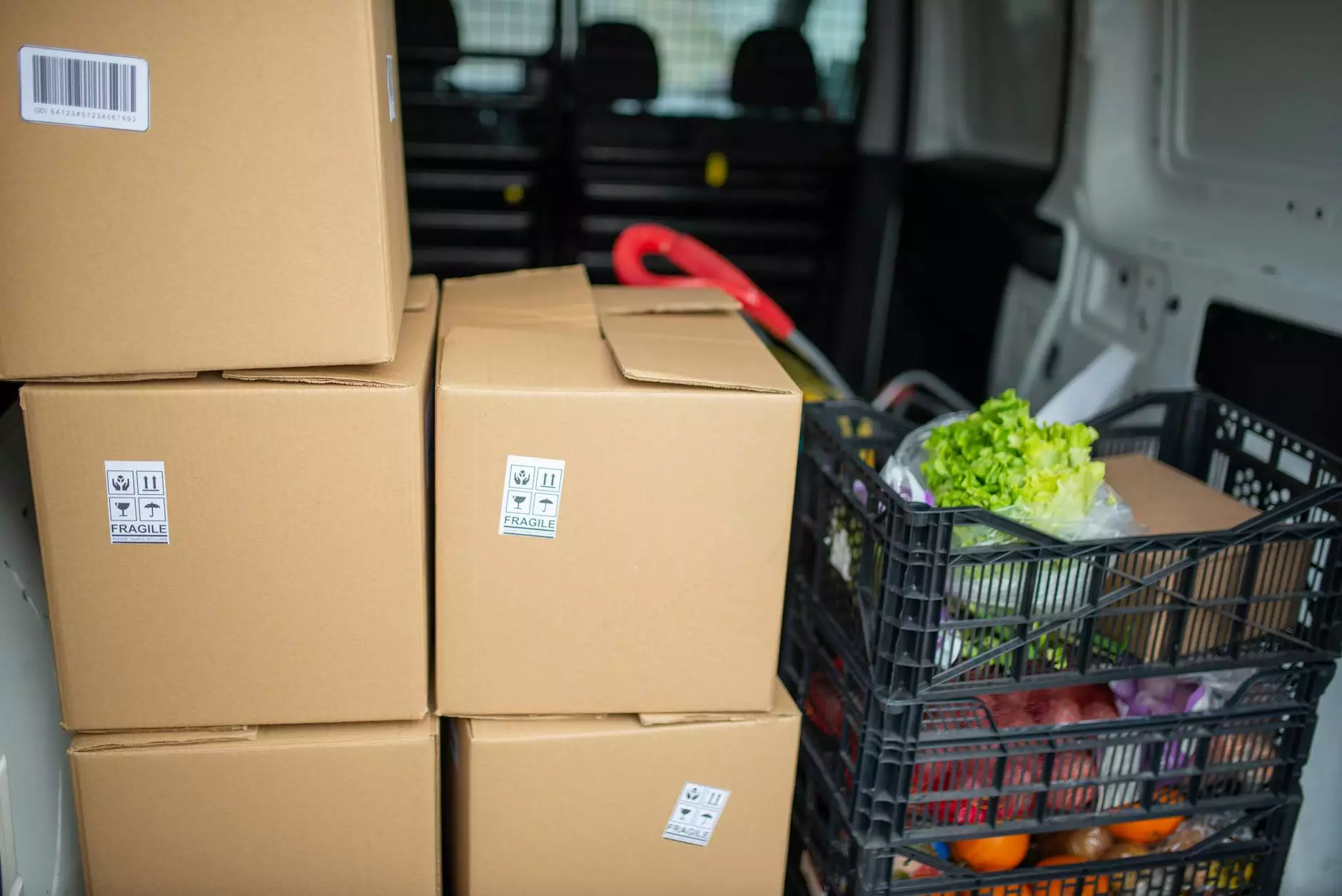Unlocking Business Efficiency with Barcode Scanners

In today's fast-paced business environment, the need for accuracy and efficiency is more essential than ever. Businesses of all sizes are turning to innovative solutions to streamline their operations. One such solution that has revolutionized the way companies manage inventory, sales, and customer interactions is the barcode scanner. This comprehensive guide will delve into the world of barcode scanners, exploring their features, benefits, and applications in various industries, with a particular focus on how they can enhance business performance.
What is a Barcode Scanner?
A barcode scanner is a device that reads printed barcodes, which are a series of parallel lines or patterns that represent numerical or alphanumeric data. By translating this information into a format that computers can understand, barcode scanners play a critical role in inventory management, point of sale systems, and data collection. There are several types of barcode scanners available, each designed to meet specific business needs.
Types of Barcode Scanners
Understanding the different types of barcode scanners is essential for businesses looking to implement this technology. Here are the most common types:
- Handheld Barcode Scanners: These are portable devices often used in retail environments. They can be cordless or corded and are typically lightweight for easy handling.
- Stationary Barcode Scanners: Commonly found at checkout counters, these scanners are fixed in place and used for scanning items as they pass by the scanner.
- Industrial Barcode Scanners: Built for rugged environments, these scanners are designed to withstand harsh conditions and are often used in warehouses and manufacturing environments.
- Presentation Barcode Scanners: Ideal for retail settings, these scanners can automatically scan items as they are presented in front of them, facilitating quick transactions.
- Smartphone Barcode Scanners: With the rise of mobile technology, many businesses now use smartphone apps equipped with barcode scanning capabilities, making it convenient for quick inventory checks on the go.
Benefits of Using Barcode Scanners
Investing in a barcode scanner can offer numerous advantages that directly impact a business's bottom line. Here are some key benefits:
1. Increased Accuracy
One of the most significant advantages of using barcode scanners is the drastic reduction of human error. Manual data entry is prone to mistakes, which can lead to inventory discrepancies and dissatisfied customers. By utilizing barcode scanners, businesses can ensure high levels of accuracy in their transactions and inventory management.
2. Time Efficiency
Time is money, and barcode scanners help businesses save both. Scanning items takes significantly less time than manually entering data. This efficiency can improve customer satisfaction in retail settings and streamline operations in warehouses, allowing employees to focus on more critical tasks.
3. Enhanced Inventory Management
Barcode scanners provide real-time updates on inventory levels, making it easier for businesses to manage stock effectively. With accurate data at their fingertips, companies can reduce overstocking and stockouts, ultimately leading to better cash flow and reduced holding costs.
4. Better Customer Experience
In retail, customer experience is paramount. Barcode scanners enable quicker checkouts, reducing wait times and improving customer satisfaction. Moreover, they help businesses maintain accurate pricing and promotions, ensuring that customers receive the best service possible.
5. Data Collection and Analytics
Barcode scanners provide valuable data that can be analyzed to gain insights into sales trends, product performance, and customer behavior. This information can inform marketing strategies, inventory purchasing, and overall business decisions.
Applications of Barcode Scanners in Various Industries
The versatility of barcode scanners allows them to be utilized across various industries. Below are some key applications and how they enhance operations in each sector:
1. Retail
In the retail sector, barcode scanners are indispensable. They facilitate seamless transactions by quickly reading product barcodes at checkout, enabling businesses to maintain accurate inventory levels and monitor sales trends in real time.
2. Warehousing and Logistics
In warehouses, barcode scanners streamline operations by improving inventory accuracy and speeding up the receiving and shipping processes. They allow for efficient tracking of products throughout the supply chain, ensuring timely deliveries and proper stock management.
3. Healthcare
Barcode scanners play a crucial role in healthcare by ensuring accurate medication administration and patient identification. Scanning barcodes on medications helps prevent errors, ensuring that patients receive the correct treatments and dosages.
4. Manufacturing
In manufacturing settings, barcode scanners are used to track materials and components throughout the production process. This enhances inventory management and quality control, promoting smoother operations and reducing waste.
5. Libraries and Educational Institutions
Libraries have adopted barcode scanners to manage their inventory of books and resources effectively. Students and staff can quickly check out and return items, making the process more efficient and user-friendly.
How to Choose the Right Barcode Scanner for Your Business
Selecting the right barcode scanner is critical for maximizing its benefits. Here are some factors to consider when making your choice:
- Type of Barcode: Ensure that the scanner you choose can read the types of barcodes relevant to your business, such as QR codes, UPC codes, or Code 128.
- Environment: If you work in a harsh environment, consider rugged barcode scanners that are durable and weather-resistant.
- Connectivity: Determine whether you need a wired or wireless scanner based on your business operations. Wireless scanners offer more flexibility and mobility.
- Integration: Check if the scanner can be easily integrated with your existing point of sale or inventory management systems.
- Budget: Evaluate your budget and balance cost against the features and capabilities you need.
Implementing Barcode Scanners in Your Business
Successfully implementing a barcode scanner system requires careful planning. Here are some steps to ensure a smooth integration:
1. Assess Your Needs
Begin by determining the specific needs of your business. Consider the volume of transactions, the types of products, and the environment in which the scanners will be used.
2. Choose the Right Equipment
Once you have assessed your needs, choose the appropriate barcode scanners that align with your operational requirements.
3. Train Your Staff
Provide comprehensive training for your staff on how to use the barcode scanners effectively. This will maximize their benefits and ensure minimal disruption during the transition.
4. Integrate with Existing Systems
Integrate the scanners with your existing inventory management or POS systems to streamline operations and maintain data consistency.
5. Monitor and Optimize
After implementation, monitor the performance of the barcode scanning system. Analyze data and gather feedback from employees to identify areas for improvement.
Conclusion
Incorporating a barcode scanner into your business operations is a powerful way to enhance efficiency, accuracy, and customer satisfaction. As technology continues to evolve, embracing barcode scanning solutions can lead to significant improvements in inventory management, point-of-sale processes, and overall operational performance. Whether you operate in retail, manufacturing, healthcare, or any other sector, the benefits of adopting this technology are invaluable. By selecting the right scanner and implementing it effectively, businesses can pave the way for success in a competitive marketplace.
For more information on barcode scanners and other printing services, visit Durafast Label, your trusted source for high-quality printing solutions and products.









